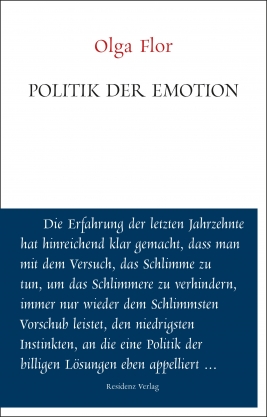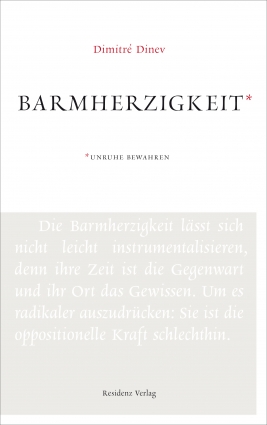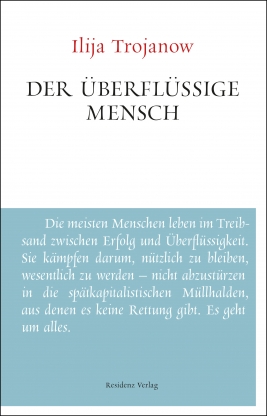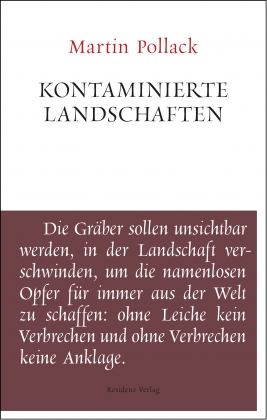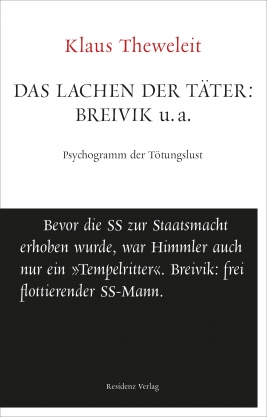Dabei ist Flors Buch, das in der sehr elegant betitelten und gestalteten Reihe Unruhe bewahren im Residenz Verlag erschienen ist und auf einer Grazer Vorlesungsreihe gleichen Namens basiert, alles andere als ein wüstes Pamphlet, sondern ein in kurze Sequenzen unterteilter Panoramaschwenk, der ohne Anspruch auf Vollständigkeit oder Systematik die politischen Verwerfungen der Gegenwart registriert: Trumps „Twittergewitter“ werden ebenso bedacht wie die Politik mit Angst und Neid oder die Krise der Rationalität, sprich: des argumentbasierten Diskurses im Zeitalter der permanenten Gekränktheitsbereitschaft.
[Quelle: Klaus Nüchtern, ZEIT ONLINE]
Olga Flor, die zunächst Physik und Kunstgeschichte studierte und dann jahrelang im Multimedia-Bereich arbeitete, seziert mit ihrer schriftstellerischen Arbeit eine Gesellschaft, die sich mehr und mehr im Privaten breitmacht und das Politische außer Acht lässt, während sich gleichzeitig eine „Politik der Emotionen“ breitmacht.
[Quelle: Joseph Schimmer, Ö1]
Olga Flor gehört zu den renommiertesten Roman-Autorinnen Österreichs. In ihren Büchern seziert sie gnadenlos gesellschaftliche Entwicklungen. (…) In „Politik der Emotionen“ geht sie aber weit darüber hinaus. Sie analysiert in gewohnt messerscharfen Stil die politischen Entwicklungen unserer Zeit. (…) Ein engagiertes, aufrüttelndes, wichtiges Buch.
[Quelle: Gerald Heschl, DER SONNTAG]
… ein knapp gehaltener, kurzweiliger und auf zahlreiche interessante Details zoomender Panoramaschwenk über die Verwerfungen in der politischen Landschaft der Gegenwart.
[Quelle: Klaus Nüchtern, FALTER]
Hochaktuelle, unentbehrliche Streitschrift.
[Quelle: KULTURPUNKT]
Sie analysiert eine politische Entwicklung, in der immer komplexeren Fakten mit Vereinfachungen, Schuldzuweisungen und „Bauchgefühlen“ begegnet wird, in der Aufklärung und Analyse durch Verschleierungstaktik ersetzt wird.
[Quelle: APA]
Kluge, aktuelle und pointierte Texte der „Grazer Vorlesungen“ 2018. Für kritische und politisch interessierte ZeitgenossInnen.
[Quelle: Fritz Popp, BIBLIO]
Ohne Austausch und Auseinandersetzung gelingt Demokratie nicht. Allerdings gilt ohne Alternative: Streiten mit Fakten bitte.
[Quelle: SONNTAG]
